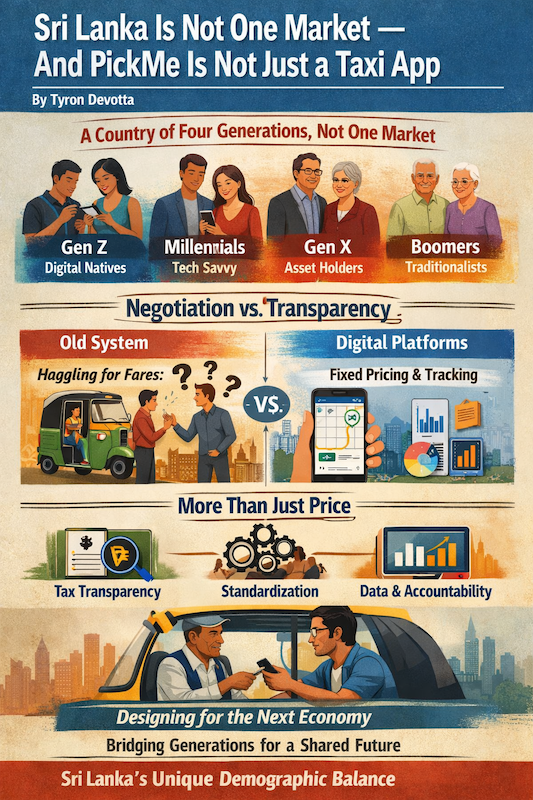By Mangala Rodrigo
From a global perspective, FinTech has a huge social impact through financial inclusion and it has witnessed tremendous growth. Last year alone equity funding raised by FinTech companies around the world nearly doubled. It is estimated that the global market will grow by 23% in the next five years, reaching approximately $ 5 trillion.
Sri Lanka too has been witnessing exponential growth with the average transaction value per user in the Alternative Financing segment projected as $ 13,000 in 2022. The market’s largest segment, which will be Digital Payments, is projected to achieve a total approximate transaction value of $ 4,000 million in 2022 and user numbers are expected to rise to 10 million by 2027. By 2023, the Digital Investment segment is expected to show a revenue growth of 22.5%.
But while both developed and developing nations of the world are leaning towards FinTech as a catalyst for substantial economic benefits, the question arises as to the real impact the FinTech industry will have on Sri Lanka in terms of ‘democratising finance.’ In other words, can FinTech reach the bottom of the pyramid to provide succour to those very much in need or is it going to benefit only the elite few?
Microfinance woes
The Sunday Morning in a recent article pointed out that issues relating to microfinancing in rural areas are escalating. The article says in the current economic crisis, more and more people in rural areas are going to unscrupulous loan sharks to borrow funds because they are unable to provide the collateral banks require to obtain loans.
What results is that loan sharks prey on them for sky-high interest rates which drives some even to suicide when they are unable to pay. Apart from that, a situation is created where this kind of financing institution can thrive.
The Sunday Morning article quotes University of Peradeniya Department of Economics and Statistics Prof. Ananda Jayawickreme, who says: “Our financing institutions were more concerned with profit-hunting and had forgotten about their social responsibility. When we had the microfinancing concept, even microfinancing institutions forgot their principles. They no longer help SMEs, but operate as profit-making businesses.”
How can FinTech make a difference?
How can FinTech make a difference in this scenario? For one, FinTech is not just about digitising money, but rather it’s about monetising data. It’s about how we can create and capture value addition from data.
FinTech is the value surge that is now starting to flow from an increasingly digitised economy. Financial services providers now talk about attributes, or insights into consumers, not just in the tens of thousands but in the hundreds of thousands and millions.
And the more mass it gets the more it can reach the bottom of the pyramid, from a Sri Lankan context by making enough data available to banks about rural borrowers which will not only enhance their lives but also neutralise unethical money lenders.
But how can that be made possible? Sri Lankans take a lot of pride in our literacy rate but in today’s digital world what counts is our digital literacy. What is digital literacy and how is it different from computer literacy? While computer literacy is the ability to use tech platforms and tools, digital literacy is the ability to use technology effectively and safely. Digital literacy, therefore, is a combination of both abilities and beyond because it also requires critical thinking, which FinTech is all about.
Financial inclusion
Financial inclusion or giving people access to finance can be a big role FinTech can play in Sri Lanka because the need is high right now. In neighbouring India, the Government decided that more people needed access to banks and brought in regulations that made it possible for rural Indians to access microfinancing through the banking system. This was all through data being made available through AI (Artificial Intelligence) and it is what Sri Lanka needs to do.
If banks and other responsible financial institutions are allowed to offer better online facilities to their customers, like opening accounts online without having to visit a branch, I am certain they would be able to do their own incentivising to attract potential customers. Also, by these entities being able to gather information about their customers, they will be able to score credit by determining the creditworthiness of individuals or SMEs.
Two vital elements
However, at the bottom of all these are two vital elements that need to be factored in. First is the need for regulators of our financial markets to become proactive in understanding the nuances of the FinTech industry so they can clear regulatory bottlenecks. Second, there is an urgent need for the whole of Sri Lanka to increase our digital literacy rate so that we can uniformly reap the benefits of FinTech.
According to a 2020 Computer/Digital Literacy statistics report issued by the Department of Census and Statistics, Sri Lanka’s rural and estate sectors show considerably low digital literacy rates of 30.7% and 12.7% respectively, as opposed to the Western Province’s 45.2%.
These uneven numbers clearly indicate that wealth creation opportunities are currently concentrated mainly in the Western Province. Rural areas, which badly need microfinancing, are seriously lacking in this area, which clearly hinders our overall progress. What needs to be done about this is another conversation altogether.
(The writer is the CEO of Sampath IT Solutions and the Treasurer of the Digital Chapter of the Federation of Information Technology Industry Sri Lanka [FITIS].)
Published in The Morning (13 November 2022) - https://www.themorning.lk/can-fintech-eliminate-loan-sharks-in-microfinancing/












